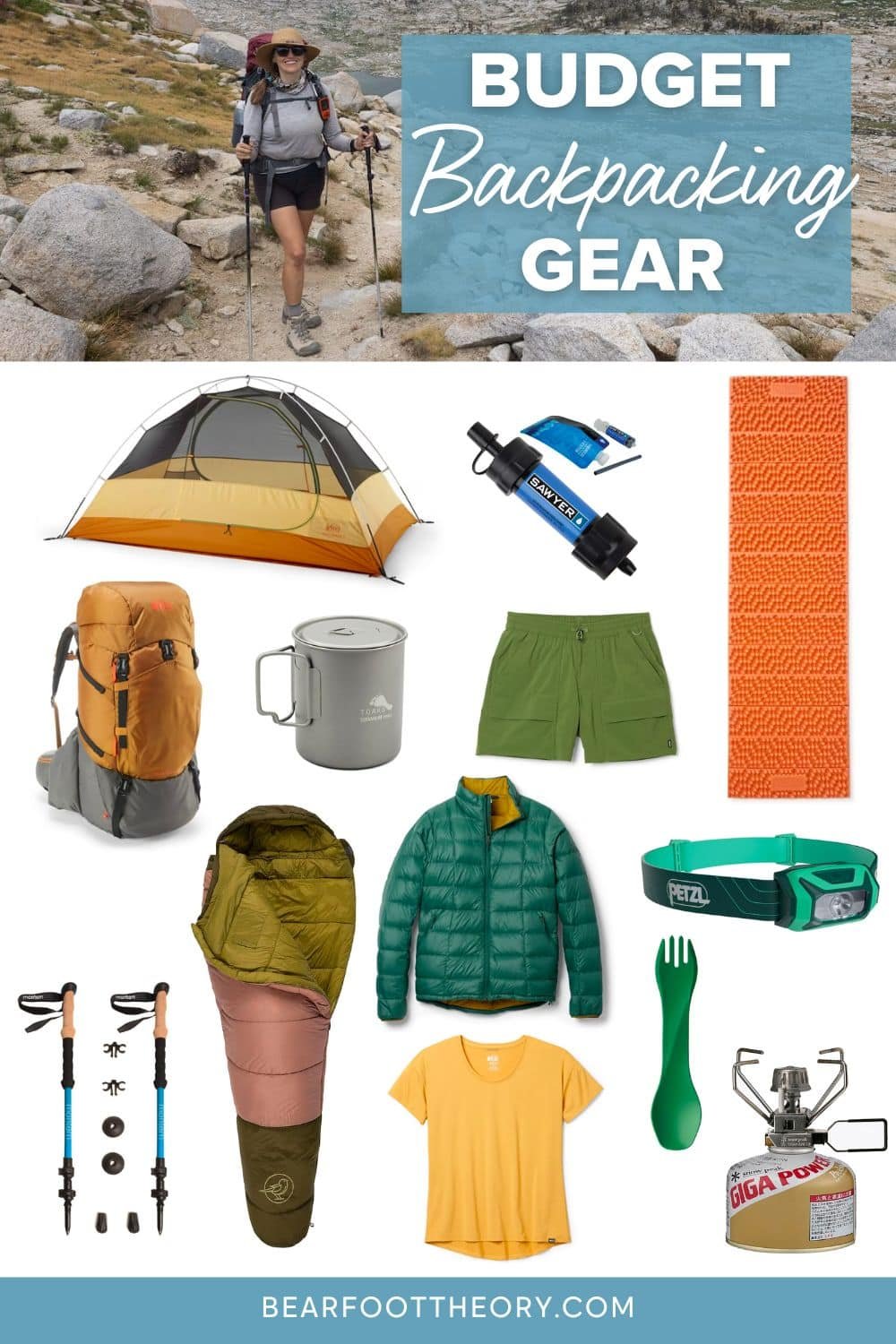
In this article, you’ll discover valuable tips and tricks for backpacking on a tight budget. We’ll delve into budget travel and explore how it can be applied to family vacations as well. Whether you’re a seasoned traveler or new to the backpacking scene, “Backpacking Brilliance” will provide you with the necessary insights to make the most of your adventure without breaking the bank. Get ready to explore the world while keeping your wallet happy!
Thrifty Traveling: Backpacking on a Tight Budget
Why Choose Budget Traveling
When it comes to exploring the world, there are countless ways to do it. However, if you’re on a tight budget, backpacking is undoubtedly one of the best options available. Not only does backpacking allow you to see remarkable destinations, but it also allows you to experience the true essence of travel. By embracing budget traveling, you’ll have the opportunity to immerse yourself in different cultures, meet new people, and create unforgettable memories, all while keeping your expenses to a minimum.
Benefits of Backpacking
Embarking on a backpacking journey has numerous benefits. Firstly, it allows you to be more flexible with your travel plans. Instead of being tied down to a set itinerary or luxurious accommodations, you have the freedom to go wherever you want, whenever you want. Additionally, backpacking helps you develop important life skills such as budget management, problem-solving, and adaptability. By traveling with minimal possessions, you’ll also learn to appreciate and rely on the simple things in life. Moreover, backpacking often leads to unexpected encounters and serendipitous adventures, making your journey even more exciting and memorable.

Planning Your Budget Trip
Before setting off on your adventure, it’s crucial to plan your budget trip carefully. Start by determining the duration of your trip and the destinations you wish to explore. Research the cost of living in each location to get an idea of how much money you need to save. Once you have a rough estimate, create a budget that includes accommodation, transportation, meals, activities, and a contingency fund. Remember to leave some room for unexpected expenses. Having a thorough plan in place will enable you to make the most of your budget and avoid any financial stress along the way.
Researching Destinations
When traveling on a tight budget, it’s vital to choose destinations that offer affordable options for accommodation, food, and activities. Do thorough research on different locations and compare their costs. Look for destinations where the local currency is favorable, as it can make a significant difference in your overall expenditure. Additionally, consider visiting countries with a lower cost of living but still have plenty to offer in terms of natural beauty, cultural experiences, and historical importance. By selecting budget-friendly destinations, you’ll be able to stretch your money further and make the most of your trip.

Choosing Affordable Accommodation
Accommodation can often be one of the most significant expenses while traveling. However, there are numerous budget-friendly options available for backpackers. One popular choice is staying in hostels, which provide affordable dormitory-style rooms. Not only do hostels offer the opportunity to meet like-minded travelers from around the world, but they also frequently organize social activities and outings, adding value to your stay. Another option is couchsurfing, where you can stay with locals for free, providing an authentic cultural experience. Additionally, consider camping or staying in budget hotels or guesthouses to save money on accommodation.
Finding Cheap Flights
One of the most substantial expenses in any travel budget is airfare. However, with a bit of planning and research, you can find cheap flights that help you stick to your budget. To begin with, be flexible with your travel dates. Flying during off-peak seasons or on weekdays instead of weekends often results in significant savings. Utilize flight comparison websites and sign up for fare alerts to keep track of any major discounts or promotions. Consider booking indirect flights or multi-city itineraries, as they can often be cheaper than direct routes. Lastly, be willing to fly with budget airlines, keeping in mind that they may have stricter baggage policies or additional fees.

Packing Essentials for Budget Travelers
When it comes to packing for a budget trip, the key is to travel light. Opt for a sturdy backpack that fits comfortably and allows you to carry all your essentials. Pack versatile clothing items that can be mixed and matched, minimizing the need for excessive outfits. Remember to pack a first aid kit, including any necessary medications, as purchasing them abroad can be costly. Carry a reusable water bottle to stay hydrated and reduce your expenses. Other essential items include a travel towel, a padlock for securing your belongings, a universal adapter, and a portable charger. By packing smart and efficiently, you can avoid unnecessary expenses and make your journey hassle-free.
Eating on a Budget
Food is another significant expense while traveling. However, there are several ways to eat delicious meals and still stick to a tight budget. One option is to eat like a local by visiting street food vendors and local markets. Not only do these places offer authentic and affordable cuisine, but they also provide an opportunity to experience the local culture. Cooking your meals at the hostel or guesthouse is another excellent way to save money. Look for accommodation options with communal kitchens where you can prepare your own meals using local ingredients. Lastly, keep an eye out for lunch specials and set menus offered by restaurants, as they often provide better value for money.
Transportation Options
Transportation costs can quickly add up while traveling, making it essential to choose budget-friendly options. Depending on your destination, consider using public transportation like buses and trains instead of taxis or private transfers. Public transportation not only saves you money but also allows you to experience the local way of life. If you’re exploring a compact city or town, consider renting a bicycle or walking to get around. Another option is to use ride-sharing services or carpooling platforms, which can help split the cost of transportation with fellow travelers. By being resourceful and open to different transportation options, you can significantly reduce your expenses.
Exploring Free and Low-Cost Activities
Contrary to popular belief, traveling on a tight budget doesn’t mean missing out on unique experiences or attractions. Many destinations offer a range of free or low-cost activities that allow you to explore and enjoy your surroundings without breaking the bank. Take advantage of free walking tours, which provide insights into the local history and culture. Visit parks, gardens, and public spaces to relax and soak in the atmosphere. Explore local markets or flea markets that offer a glimpse into the local lifestyle and the opportunity to purchase souvenirs at reasonable prices. Research any free or discounted days at popular museums or attractions to make the most of your budget.

Interacting with Locals
While traveling, interacting with locals can greatly enhance your experience and provide valuable insights into the destination. Engaging with locals not only promotes cultural exchange but also opens doors to unique experiences and hidden gems that may not be found in guidebooks. Strike up conversations with locals in markets, cafes, or public transportation. Take part in community events or festivals to mingle with the locals and learn about their traditions and customs. By showing genuine interest and respect for the local culture, you’ll make meaningful connections and create long-lasting memories.
Navigating Language Barriers
Language barriers can sometimes pose challenges while traveling, especially in countries where English is not widely spoken. However, with a positive attitude and a few essential phrases, you can overcome this hurdle. Consider learning a few basic phrases in the local language such as greetings, thank you, and asking for directions. Use translation apps or carry a pocket-sized dictionary for assistance. Non-verbal communication, such as pointing at a map or using hand gestures, can also be effective in conveying your message. Remember to be patient and understanding when conversing with locals, as they may be trying their best to help despite the language barrier.
Staying Safe and Healthy on a Budget
Ensuring your safety and well-being should always be a top priority, regardless of your budget. Research the safety situation and any potential risks in your chosen destinations before embarking on your trip. Invest in a reliable travel insurance policy that covers medical emergencies, trip cancellations, and lost belongings. Carry a photocopy of your important documents, such as your passport and visas, and store them separately from the originals. When it comes to maintaining good health, prioritize hygiene by washing your hands regularly and carrying hand sanitizer. Drink bottled or filtered water to avoid any stomach issues. Lastly, be cautious with your belongings and avoid displaying signs of wealth to minimize the risk of theft.
Conclusion
Traveling on a tight budget doesn’t mean compromising on the joys of exploration and adventure. By embracing backpacking and adopting a thrifty mindset, you can have a fulfilling travel experience while keeping your expenses in check. Plan meticulously, choose budget-friendly destinations and accommodations, and make smart choices when it comes to transportation and meals. Immerse yourself in the local culture, engage with locals, and seek out free or low-cost activities to make the most of your budget trip. Remember, it’s not about how much money you spend, but rather the experiences and memories you create along the way. So pack your backpack, set off on your thrifty adventure, and get ready for a journey of a lifetime.



